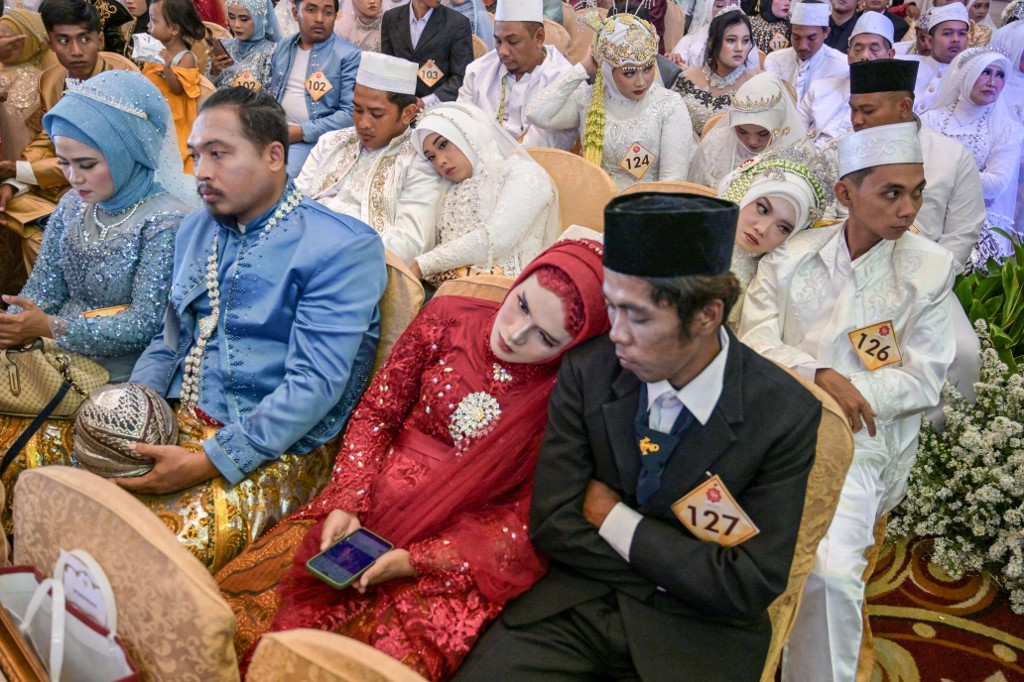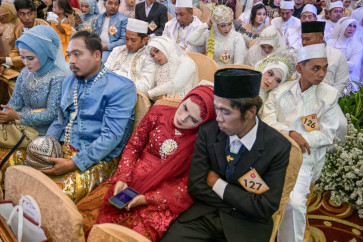Popular Reads
Top Results
Can't find what you're looking for?
View all search resultsPopular Reads
Top Results
Can't find what you're looking for?
View all search resultsSakinah Clap and internalized submission in marriage
Tepuk Sakinah lacks explicit reference to justice and equality. Its key concepts emphasize mutuality rather than equality.
Change text size
Gift Premium Articles
to Anyone
R
ecently a chant called Tepuk Sakinah (Sakinah Clap), created by the Religious Affairs Ministry, went viral. It was initiated as a creative method to help Muslim couples remember key Islamic marital values through rhythmic clapping and chanting.
The lyrics are simple and easy to remember. It goes, “pairing, pairing, pairing (followed by claps). Strong pledge, strong pledge, strong pledge (claps). Love each other, respect each other, care for each other and be content with each other. Deliberation for harmony.”
These lines represent Islamic marital principles: partnership, a firm vow (ijab qabul), mutual love, respect, care, consent and dialogue. The chant has been taught at local Offices of Religious Affairs (KUA) to prepare couples for marriage.
The chant has gained public approval. Interfaith and minority rights activist Alissa Wahid, in her column Udar Rasa in Kompas daily on Oct. 12, said that the chant reminds couples to value dialogue and mutual care, serving not as a mere chant but as a moral compass for a harmonious marriage.
In West Sumatra, Fadly Amran, mayor of Padang, has called the province’s residents to abide by the Tepuk Sakinah, amid a rising divorce rate in the provincial capital.
Yet, while its intentions are positive, the Sakinah Clap lacks explicit reference to justice and equality. Its key concepts, mutual love, respect, care and consensus, emphasize mutuality rather than equality. This distinction matters within Indonesia’s patriarchal Islamic culture, where gender hierarchy still shapes family life.
Sociologist Siti Mas’udah, in her 2021 study, observed the belief that “a husband is a leader and must be obeyed” is passed down unquestioned through generations in Indonesia. Her study identified three family types: male-dominated, female-dominated and alternative: the last representing true partnership, where spouses share decision-making, childcare and finances. Yet this egalitarian model remains rare.



















